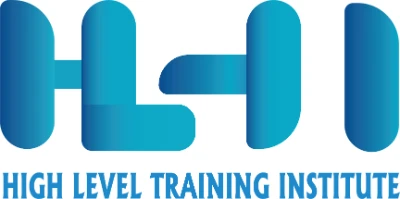CAIP Certified Artificial Intelligence Professional ™
Artificial Intelligence (AI) training program involves a structured approach to develop the necessary skills and knowledge in this rapidly evolving field. Whether you’re designing this program for a corporate environment, educational institution, or self-paced online learning, it’s important to cater to a wide range of learners, from beginners to advanced users. Below is a guide…
$4,390.00
Location: Paris, France
Course Overview
Artificial Intelligence (AI) training program involves a structured approach to develop the necessary skills and knowledge in this rapidly evolving field. Whether you’re designing this program for a corporate environment, educational institution, or self-paced online learning, it’s important to cater to a wide range of learners, from beginners to advanced users. Below is a guide to structuring a comprehensive AI training program.
Benefits of Attending
Technical Proficiency: Participants gain hands-on experience with AI technologies, tools, and methodologies, enhancing their technical skills in machine learning, deep learning, natural language processing, and more.
Problem-Solving Skills: AI training encourages complex problem-solving and critical thinking skills as participants learn to design and implement AI models to address real-world challenges.
High Demand: With AI skills being in high demand across various industries, completing an AI training program significantly boosts employment prospects and opens up opportunities for career advancement.
Versatility: The skills acquired are applicable in numerous fields such as finance, healthcare, automotive, entertainment, and more, making individuals versatile and valuable assets to any organization.
Up-to-Date Content: Help individuals and organizations stay ahead in the game.
Improved Decision Making: AI training equips participants with the ability to analyse and interpret complex data, leading to more informed and effective decision-making processes in business and other areas.
Innovation and Creativity: Exposure to AI technologies fosters innovation by encouraging creative solutions to problems. Participants can apply AI in novel ways within their fields, potentially leading to ground-breaking advancements and efficiencies.
Ethical and Social Implications: Understanding the ethical considerations and potential societal impacts of AI applications is crucial. Training programs often cover these topics, preparing participants to deploy AI technologies responsibly.
Customization and Optimization: Enable teams to tailor AI solutions to their specific needs, optimizing operations, enhancing customer experiences, and driving growth.
Increased Efficiency and Productivity: AI can automate routine tasks, freeing up human resources for more strategic activities that require human insight, thereby increasing overall efficiency and productivity.
Cultural Literacy in Technology: AI literacy is becoming an essential part of technological culture. Understanding AI, its capabilities, and its limitations is crucial for participating effectively in the modern world.
Who Should Attend
- A cross-functional manager or business leader interested in understanding AI’s potential across industries
- A technical or non-technical professional looking to pursue growth in your current role
- A CIO, IT manager, or business analyst who would like to understand how AI can be successfully implemented within your organisation
- Seeking a foundational understanding of how AI works
This programme does not require technical skills or the ability to code.
Certification Body
The GAFM was founded in 1996 by the original founders of the Graduate Leadership Society. The Founders of our Standards Board are CEOs, Executives, Professors, and industry experts from around the globe. We desire to raise education standards and ethics in the business and management industries. The Standards Policy Board awards specialized board certifications, designations, and charters in the fields of: finance, accounting, management, and consulting fields to qualified professionals who have completed internationally recognized or accredited exams & education, government recognized degrees and documented management credentials and experience. Since 1996, the Academy has been promoting accredited graduate standards for certification in business, management, law, and finance. Since the inception with the founding of the Graduate Institute of Leadership in 1996, the Academy has been focused on quality assurance with accredited education, exams, assessment, education, ethics, and continuing education. Further, applicants must also have the necessary experience in practice, research or publications in their respective areas of expertise.


